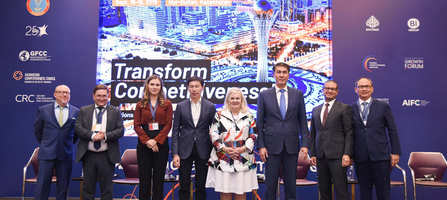
News
A group of Kazakh experts presented recommendations on systemic reforms in Kazakhstan
5 May 2020


Strategy 2050 site
sources
The aim of the study was to combine the work of national and foreign experts. The study was conducted by experts G. Pazylkhairova, Zh. Myrzabekov, S. Sukhanov, S. Sadieva, R. Sapyshev and groups of national experts (more than 50 people), the Center for Research and Consulting (CRC), the Center for Applied Research “TALAP”, a division of Whiteshield Partners.
“Our task was to identify the main knots and barriers in the development of the country. We understood that we would not be able to solve all the problems with research, but it was necessary to identify the main transformational points,” Pazylkhair said.
At the same time, she noted that the coronavirus pandemic has made its own adjustments to this study.
“In the future, scientists will argue about what had more effect - the coronavirus itself or the reaction to it. The world will not be the same. Society will change, the state will change. Further modernization of the country is possible only on a human-centered basis, when reforms are made on the people come first principle. The fight against coronavirus gave two important signals. The first signal is that in the event of such shocks, a functional government is needed to coordinate a large amount of resources and measures. The second signal is that the states in all previous years should have focused on the development and maintenance of public infrastructure in proper condition, as this is their basic role. We need to abandon everything that is not essential, not a priority in the public sector,” she said.
According to her story, research work was carried out for six months in several areas: human capital and the labor market, a new economic model and growth points, spatial development, public administration, interaction between citizens and the state, and the macroeconomic environment. It is also important to point out that the recommendations presented in the “white books” are aimed at improving the well-being of the citizens of our country.
“Today, local and global problems are intertwined. Under these conditions, a response to the challenges and a key to state success is the development of its main wealth - people. The leadership of the country has repeatedly announced the transition to human-centeredness. In his 2018 Message Elbasy N.A. Nazarbayev indicated that the main priority is the growth of the well-being of Kazakhstan’s people. President K.K. Tokayev in his Message on September 2, 2019, noted that public dialogue, openness, prompt response to the needs of people are the main priorities in the activities of state bodies,” the speaker said.
Gulbanu Pazylkhair then explained the decision behind dividing the study into 5 books.
“The first book is devoted to the study of the macroeconomic sphere. It discusses the new model of the National Fund, issues regarding fiscal sustainability, diminishing the size of “shadow economy,” tax reform, measures of increasing the efficiency and transparency of the management of state social assets, strengthening banking stability and others,” she explained.
The project manager of First President Fund of the Republic of Kazakhstan noted that the second book describes the possible contours of the public administration reform. It provides recommendations on the development of a state policy aimed at improving the well-being of citizens, streamlining the functionality of the public sector, improving budget performance, developing civic engagement in regions and strengthening local communities.
“The third book is about the development of human capital. Researchers give their vision on the issue of barriers that prevent the country from entering the Top 30 developed countries and describe systemic initiatives in their recommendations. The study showed how heterogeneous the country's human capital is, and any policies to improve its quality should differ in space both by region and by group in terms of employment structure, income, and so on,” Pazylkhair said.
At the same time, it was noted that “brain-drain” is typical for any place in the world. It is necessary to change the system of values with an increase in the mobility of people, both horizontal and vertical.
“The fourth book gives recommendations for new economic stimulus. Experts are considering directions and measures to diversify the economy by strengthening the development of manufacturing industry, switching to economically intensive agro-industrial complex, establishing creative industries and innovations, improving business institutions, including ensuring a healthy competitive environment,” the speaker said.
The fifth book deals with the development of space and increasing the effectiveness of regional development policies.
The researchers separately noted that the results of the work done are advisory in nature and are not an alternative to ongoing state programs and development concepts.
“All initiatives have been developed in light of the country's progress and in recognition of the lessons learned in the process. The next step should be to conduct a public discussion, to which we invite researchers, experts working in research centers and the corporate sector, both in Kazakhstan and abroad, NCE Atameken, trade unions and associations, social movements and many others, who are interested in the issues of socio-economic development of Kazakhstan,” Pazylkhair informed.
In conclusion, the speaker said that the next discussion is scheduled for May 11, 2020.
It should be noted that methodological support for the study was provided by well-known foreign analysts, including Anthony O'Sullivan - Partner and Director of Whiteshield Partners, Professor at the Paris Institute of Political Studies (Grande école Sciences Po), Eric Berglof - Director of Whiteshield Partners and former Chief Economist of the European Bank Reconstruction and Development (EBRD), Fady Farra - Founder and Partner of Whiteshield Partners, Senior Lecturer at the Harvard School of Government. Kennedy, Pavel Wojciechowski - Director of Whiteshield Partners, former Minister of Finance of Poland, and Sergey Guriev - Economics and Policy Expert of Whiteshield Partners, former Chief Economist of the EBRD, Professor at the Paris School of Political Science (Sciences Po). Separate blocks of the study were supervised by Kazakhstani experts - Anuar Buranbaev (CRC), Rakhim Oshakbaev (Talap), Kanysh Tuleushin (Whiteshield Partners).
share
article
references
https://strategy2050.kz/ru/news/gruppa-kazakhstanskikh-ekspertov-predstavila-rekomendatsii-po-sistemnym-reformam-v-kazakhstane/all publications











